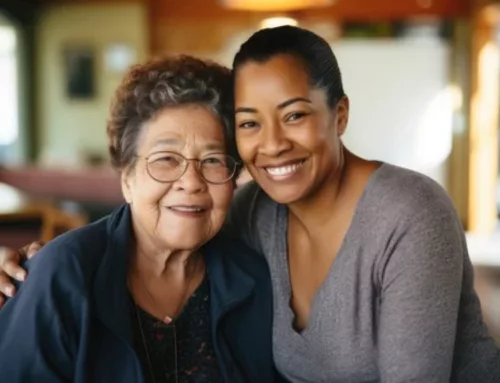The role of a caregiver often stretches far beyond the immediate needs of our loved ones. Among the many aspects to consider is the challenging task of discussing end-of-life plans. While it can be emotional and complex, having these discussions is fundamental to ensuring the wishes of our loved ones are met with respect and clarity. This article seeks to offer guidance on delicately approaching and effectively navigating this important topic.
Creating a Comfortable Environment:
Creating a Comfortable Environment:
Initiating a conversation about the end of life requires an ambiance of trust and comfort. Consider these factors:
- Timing: Wait for a calm, unhurried moment when both you and your loved one can fully engage.
- Setting: Choose a quiet, intimate environment free from distractions.
- Participants: While some may prefer a one-on-one conversation, others might find solace in discussing it with the entire family. Understand your loved one’s preference.
Approaching the Subject Delicately:
Approaching the Subject Delicately:
Delicacy and empathy are key:
- Open-ended Questions: Rather than making assertions, ask questions like “Have you thought about what you’d like in terms of medical care?” or “How do you feel about planning for the future?”
- Active Listening: Allow them the opportunity to speak freely. Let them share their fears, wishes, and thoughts without interruption. Nodding, maintaining eye contact, and verbal affirmations can make them feel heard.
Understanding the Components of an End-of-Life Plan:
Understanding the Components of an End-of-Life Plan:
Having a comprehensive view of what end-of-life planning entails can be empowering:
- Healthcare Directives: Discuss how they envision their healthcare in their final days. Do they have preferences regarding life support, pain management, or other treatments?
- Funeral Arrangements and Preferences: While a delicate subject, understanding their desires regarding burial, cremation, or memorial services can provide clarity.
- Financial Matters and Asset Distribution: A candid discussion about finances, properties, and their distribution can prevent misunderstandings in the future.
Offering Resources and Support:
Offering Resources and Support:
You don’t have to navigate these waters alone:
- Literature and Websites: There are many resources available that offer guidance on end-of-life planning. Books, websites, and even workshops can be very valuable.
- Counselors and Support Groups: Emotional support is essential. Consider suggesting counseling or joining a support group that can offer insights and shared experiences.
While discussing end-of-life plans may be challenging, they’re an essential step in ensuring that your loved one’s wishes are honored. The peace of mind that results from having a clear end-of-life plan is immeasurable, both for the individual and their family. At Smoky Mountain Home Health and Hospice, we’re dedicated to supporting families through every phase of life. Our commitment extends beyond immediate medical needs to encompass the emotional and practical aspects of end-of-life care. Your trust in us is an honor we deeply value.






